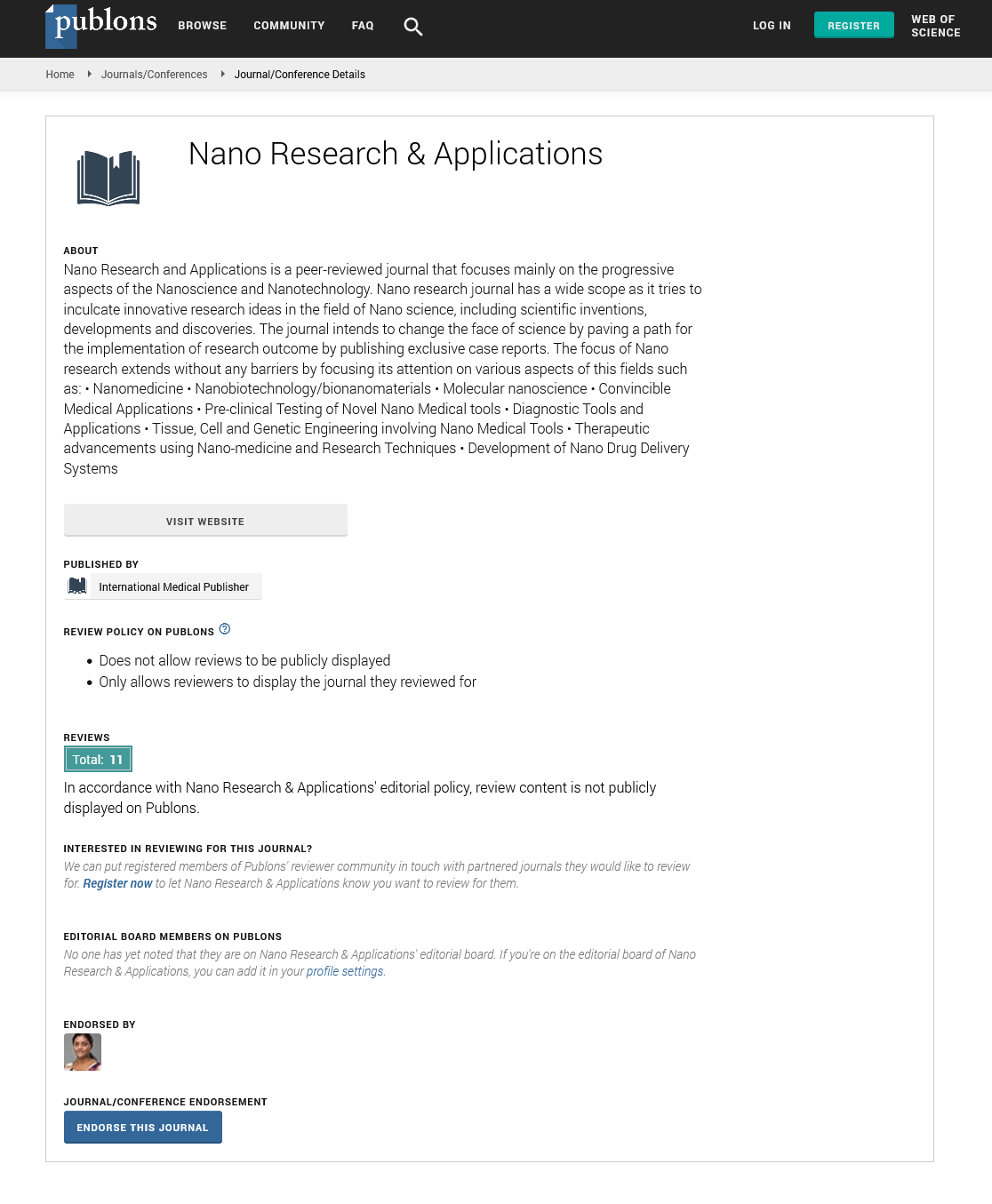ISSN : 2471-9838
Nano Research & Applications
Facile synthesis of Ag and Ag-CuO nanoparticles using aqueous extracts of Mimosa pigra and their catalytic activities in the degradation of some common pollutants
International Meeting on Advanced Nanomaterials and Nanotechnology
November 07-08, 2017 Singapore
Elias E Elemike, Damian C Onwudiwe, Doris F Ogeleka and Justina I Mbonu
North West University, South Africa
ScientificTracks Abstracts: Nano Res Appl
DOI: 10.21767/2471-9838-C1-005
Abstract
Biosynthesis of Ag and Ag-CuO nanoparticles using aqueous leaf extracts of Mimosa pigra is presented. The nanoparticles were synthesized using different concentration ratios of aqueous leaf extract of Mimosa pigra to the silver and copper salts. The nanoparticles were characterized using UV-vis spectroscopy, Fourier transform infra-red (FTIR) spectroscopy, powder X-ray diffraction (PXRD), scanning and transmission electron microscopies. Stable nanoparticles with average particle size of 17.5 nm (Ag) and 49.5 nm (Ag-CuO), which were capped by the plant extracts via the O-H and C=O groups from flavonoids, tannins and other bio compounds were obtained. The UV-vis spectra revealed earlier formation of surface Plasmon bands for silver nanoparticles when the volume of extract was reduced, although with lower intensity. In the spectrum of Ag-CuO nanoparticles, broad bands around 400-500 nm appeared in the region of 365-369 nm. Crystallite size of approximately 50 nm for the Ag-CuO was calculated from XRD results using Scherrer equation and the particles were well dispersed as shown by the TEM images. The photocatalytic activities of the synthesized Ag and Ag-CuO nanoparticles were studied towards the degradation of methylene blue (MB) and hydrogen peroxide (H2O2). The results provide eco-friendly reaction toward environmental remediation from common pollutants.
Google Scholar citation report
Citations : 387
Nano Research & Applications received 387 citations as per Google Scholar report
Nano Research & Applications peer review process verified at publons
Abstracted/Indexed in
- Google Scholar
- China National Knowledge Infrastructure (CNKI)
- Directory of Research Journal Indexing (DRJI)
- WorldCat
- Publons
- Secret Search Engine Labs
- Euro Pub
Open Access Journals
- Aquaculture & Veterinary Science
- Chemistry & Chemical Sciences
- Clinical Sciences
- Engineering
- General Science
- Genetics & Molecular Biology
- Health Care & Nursing
- Immunology & Microbiology
- Materials Science
- Mathematics & Physics
- Medical Sciences
- Neurology & Psychiatry
- Oncology & Cancer Science
- Pharmaceutical Sciences
